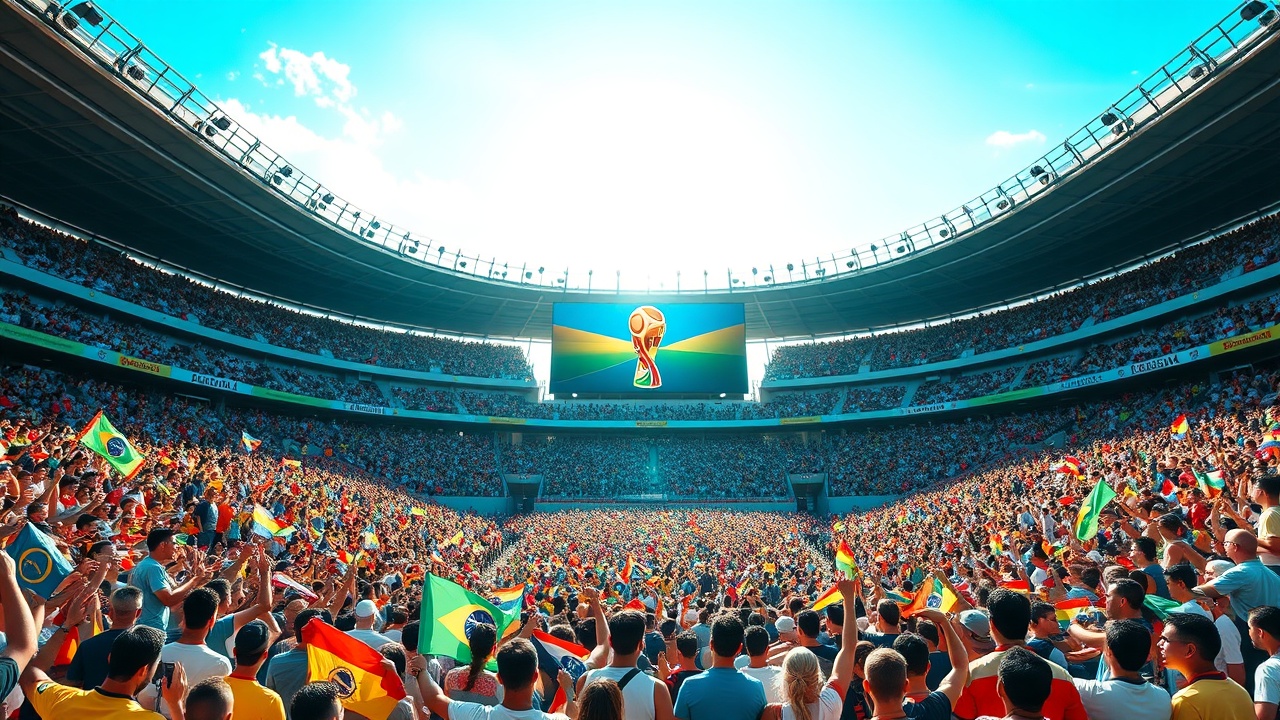Invitation to the World
At the FIFA Congress held last month in Asuncion, Paraguay, president Gianni Infantino expressed a warm invitation to the world, asserting that the U.S. would welcome international fans for the upcoming Club World Cup and the 2026 World Cup. This positive outlook followed a meeting with the White House Task Force, where promises were reportedly made regarding immigration policies amid concerns about the events scheduled to take place in the United States.
“The world is welcome in America,”
Infantino confidently conveyed, addressing players, staff, and fans alike.
Concerns Arise
However, recent developments have called that assurance into question. A travel ban, announced by U.S. President Donald Trump, targets individuals from 12 countries identified as high-risk, effectively barring their entry into the U.S. starting Monday. The nations affected include Afghanistan, Myanmar, Chad, the Republic of Congo, Equatorial Guinea, Eritrea, Haiti, Iran, Libya, Somalia, Sudan, and Yemen—prompting serious concerns about fan participation in the World Cup.
Trump, in his announcement video, emphasized his commitment to national security, stating,
“Nothing will stop us from keeping America safe.”
Despite this, the travel ban does have some exceptions, allowing access for athletes, coaches, and support personnel attending major sporting events. However, this reprieve does not extend to fans; only immediate family members of those involved in the events would qualify for entry exemptions.
FIFA’s Complicated Situation
FIFA’s predicament grows more complicated considering Iran’s qualification for the 2026 World Cup, a continuation of their recent appearances in the global tournament since 2014. While Iranian officials and players will be allowed to enter the U.S., their supporters, who vividly backed them in previous competitions, might find themselves locked out of the festivities. The same situation potentially looms over other hopeful nations like Haiti, which has historical ties to the World Cup dating back to 1974.
Infantino’s Dilemma
Infantino’s perceived strong relationship with Trump, thought to be an asset in navigating the road to the World Cup, has suddenly transformed into a diplomatic challenge. Having publicly showcased this bond—invited to Trump’s inauguration and accompanying him on international visits—Infantino now faces the backlash of an immigration policy threatening to contradict the very ideals of inclusivity that the World Cup represents.
Back in 2017, Infantino had clearly articulated that accessibility for fans and teams is crucial for the existence of the World Cup, remarking that countries should not bar supporters if they wish to host the event. Now, the stark contrast between his previous statements and the current situation exposes a troubling reality: despite having high hopes for the upcoming tournaments in the U.S., the guarantees he believed were secured are evaporating.
Future Prospects
Though Trump hinted that changes might occur before next summer’s fixtures—citing revisions to the banned country list contingent on improvements—Infantino’s confidence is being severely tested. Will he ultimately find a way to advocate for an inclusive approach, or will he be caught off guard by unpredictable shifts in policy? The unfolding scenario remains uncertain, leaving Infantino and FIFA grappling with the ramifications of political nuances and the realization that their ideal of a welcoming World Cup may remain more of a hopeful vision than a concrete reality.




